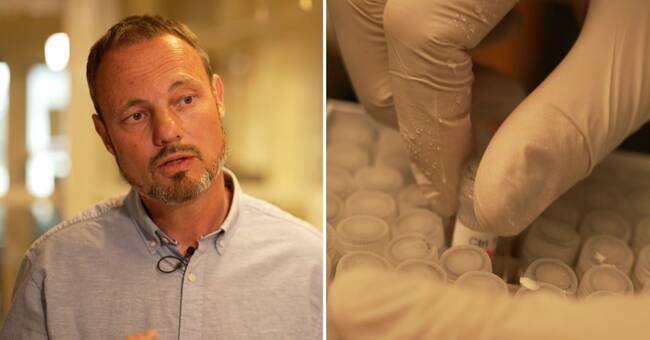- Here is a test tube with coronavirus, here we have zika virus.
Niklas Arnberg, professor of virology, wears gloves when he takes test tubes out of the 80-degree cold in the freezer in the lab.
At the lab in Umeå, the declining spread of infection has not entailed any lightened workload.
This is because they are in full swing to develop medicines to be able to stop the next pandemic.
Although vaccines have developed at a record pace against covid-19, the piece of the puzzle that could have slowed down the virus before it became a pandemic, a medicine, an antiviral drug that could have been used from the beginning to push back the virus, is still missing.
Both prevent and cure
An antiviral medicine can prevent, reduce infection and cure, but unlike bacteria, where we have antibiotics for almost all varieties today, there are only a few medicines against viruses.
- The research has started later on viruses than on bacteria, says Professor Niklas Arnberg.
Today, there are already hundreds of viruses that could be the next pandemic to hit the world.
Yet today there are only antivirals against a handful of them.
HIV and Hepatitis C are viruses that today can be successfully treated with antivirals, but against coronavirus and against almost all other viruses we are still powerless.
Antivirals should be a high priority
The WHO has now decided that research on antivirals should be given high priority.
And this can hopefully lead to us being better equipped for the next pandemic.
Niklas Arnberg and the researchers in Umeå are just one of all groups in the world that are working full time to search for new ways to attack viruses.
- Here we are testing a carbohydrate-based technology for an antiviral drug like this. The hope is to come up with a medicine that can be taken as a nasal spray or we an inhaler. It must be possible to insert it against a new virus and use it before you have had time to obtain a vaccine against that particular virus.

